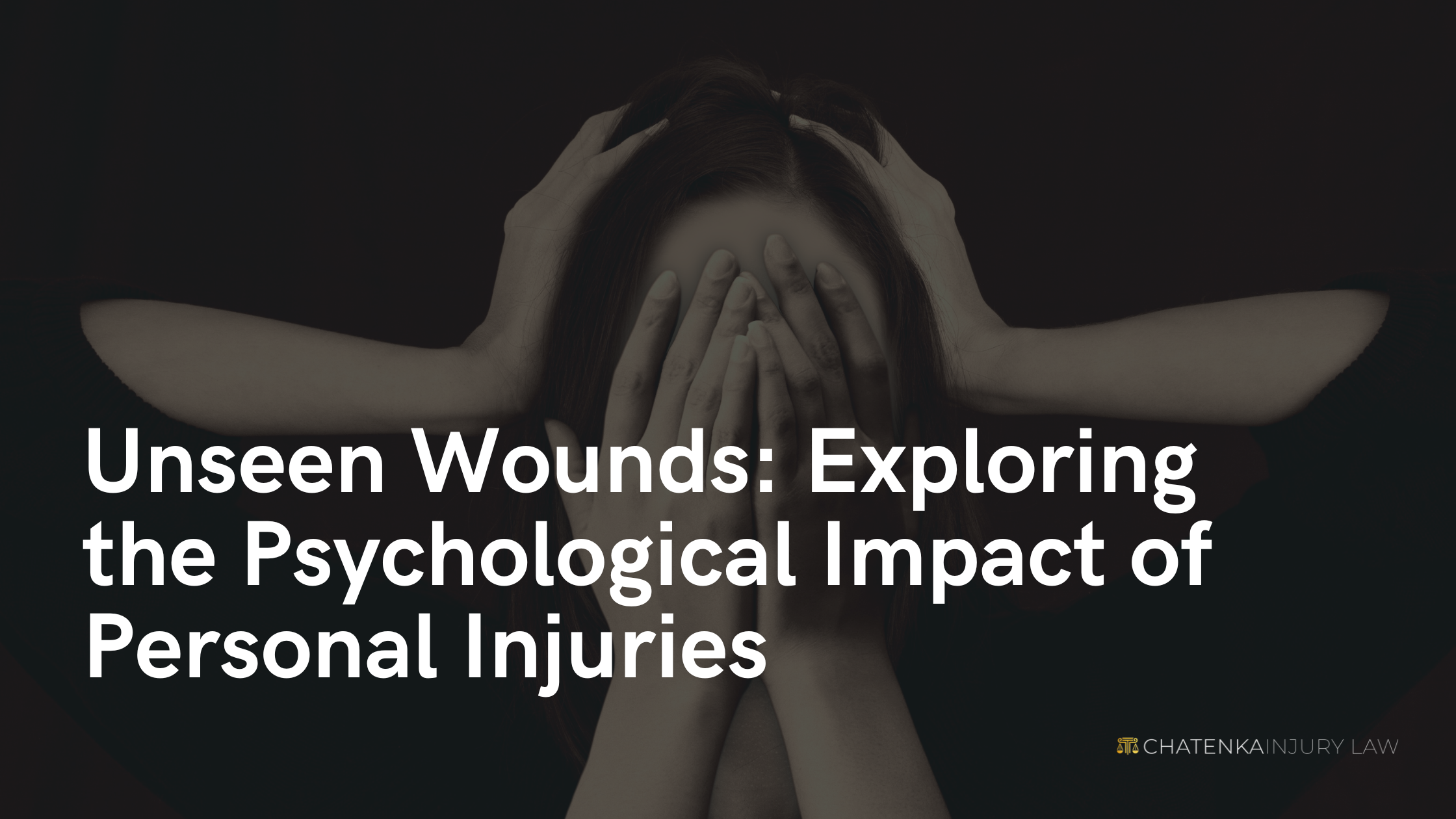Unseen Wounds: Exploring the Psychological Impact of Personal Injuries
Personal injuries can leave lasting scars, not just on the body but also on the mind. While broken bones may heal and bruises fade, the psychological trauma inflicted by accidents can linger for years, profoundly affecting an individual's mental well-being. In this section, we'll explore the silent struggle that many personal injury victims face in coping with PTSD and emotional distress.
Understanding PTSD: The Shadow of Trauma
Post-Traumatic Stress Disorder (PTSD) is a mental health condition that can develop after experiencing or witnessing a traumatic event. For personal injury victims, the event could be a car accident, a workplace injury, a slip and fall incident, or any other sudden and distressing occurrence. Symptoms of PTSD may include flashbacks, nightmares, severe anxiety, and uncontrollable thoughts about the traumatic event.
The Impact of Emotional Distress
In addition to PTSD, personal injuries can also lead to significant emotional distress. The aftermath of an accident often triggers feelings of fear, sadness, anger, and frustration. Victims may struggle with a loss of confidence, fear of engaging in activities they once enjoyed, and difficulty trusting others. Emotional distress can permeate every aspect of a person's life, affecting relationships, work, and overall quality of life.
The Ripple Effect: PTSD and Emotional Distress in Daily Life
The psychological impact of personal injuries extends far beyond the immediate aftermath of the accident. PTSD and emotional distress can seep into every aspect of a victim's daily life, disrupting their ability to function normally. Simple tasks may become overwhelming, social interactions may feel daunting, and even the thought of leaving the house can evoke intense anxiety. The ripple effect of psychological trauma can be profound, affecting not only the victim but also their loved ones and support network.
Seeking Help: Breaking the Silence
One of the biggest challenges in addressing the psychological impact of personal injuries is breaking the silence surrounding mental health struggles. Many victims may feel ashamed or embarrassed to admit that they are struggling emotionally, fearing judgment or stigma. However, seeking help is a crucial step towards healing. Therapy, support groups, and other forms of mental health treatment can provide invaluable support to those grappling with PTSD and emotional distress.
Legal Considerations: Advocating for Victims' Rights
In addition to seeking medical and psychological support, personal injury victims may also have legal recourse to address the psychological toll of their injuries. A skilled personal injury attorney can advocate for the victim's rights, seeking compensation for not only physical injuries but also psychological trauma and emotional suffering. By holding responsible parties accountable for the full extent of the harm inflicted, victims can secure the resources they need to rebuild their lives.
Shedding Light on the Unseen Wounds
Personal injuries have a far-reaching impact that extends beyond the physical realm. The psychological trauma of PTSD and emotional distress can cast a long shadow over victims' lives, affecting their mental well-being and quality of life. By raising awareness of these unseen wounds and providing support and resources for those affected, we can begin to address the holistic needs of personal injury victims, fostering healing and resilience in the face of adversity.


